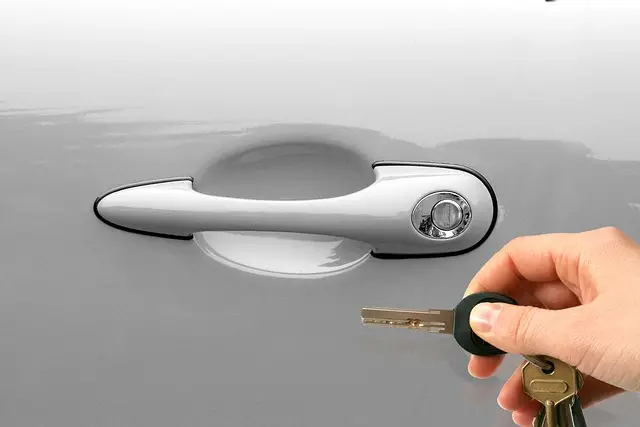Table of Contents
What You Need to Know About Insuring A Car Not In Your Name
Can you insure a car, not in your name? – That’s a typical question asked by a lot of people. In most cases, you will be unable to obtain car insurance for a car that is not enrolled in your name. If you borrow someone’s car, rent a car, or use a work vehicle, you may be able to obtain insurance coverage through non-owner insurance; however, keep in mind that this is liability-only coverage, which will not cover damage to the vehicle you’re driving.
If you want full coverage for a car you drive frequently, you must demonstrate insurable interest by being added to the title or registration of the vehicle or the owner’s existing insurance policy. However, there are policies that cover non-owners of vehicles, and these policies may be worth considering if you frequently borrow vehicles from others.
Insurance policy
In most cases, the person cannot insure a vehicle you do not own one. To fully comprehend that response, you must first understand how insurance works.
Interest that is insurable
Insurance is a type of financial product. Although your insurance “covers” your vehicle, it does not preclude the damage from occurring. Rather, having auto insurance coverage protects you financially by helping to cover claim expenses if you are in an accident.
Because auto insurance will cover damage to your vehicle and another driver’s vehicle (depending on the amount of coverage you have), you must have an insurable interest in the vehicle. This means you need to have a financial interest in the vehicle you insure. You have no insurable interest in a vehicle if it is not registered to you. As a result, you could really insure it.
Auto insurance claims
When an auto insurance allegation is paid, the insurer’s funds for the vehicle’s damage are transferred to the insurance policyholder. If you were allowed to insure a car that you did not own, you could potentially receive compensation for damage to a vehicle in which you have no financial stake.
If you are able to insure the car, you might file a claim under your accident insurance and be compensated for the damage, despite the fact that your friend has a financial stake in the vehicle because they paid for it. You have no claim against the insurer because you have no financial stake in the vehicle.
Non-insurance policy
Now that you understand why you can’t insurance policy of a car that doesn’t belong to you, let’s go over some common scenarios in which you might need auto insurance for a car you don’t own and what you can do to insure a car.
Rental cars
You have a few options for auto insurance coverage if you rent a car. If you have auto insurance on another vehicle, your coverage limits will usually transfer to a rental car. However, if you do not have full auto insurance, including optional comprehensive and collision insurance, you will be unable to repair your rental car if it is damaged. If the vehicle is stolen or vandalized, there is no coverage to insure a car.
If you do not own your auto insurance policy, you should consider purchasing the insurance provided by the rental company. In fact, if you are unable to show proof of insurance on another vehicle, you may be required to purchase coverage from the rental company before renting the vehicle.

Borrowing a car from a friend or family member
Before driving a vehicle borrowed from a friend or family member, contact their insurance company. Even if you are not listed as a regular driver on the vehicle, you should be covered by their auto insurance policy. This is known as “permissive use,” which means that the vehicle owner and auto insurer allow you to drive the vehicle momentarily so that insurance coverage stretches to you while you are using it.
If you are borrowing a car for an extended period of time, you may be required to be identified as a driver on the auto policy. Furthermore, the vehicle’s garaging address may need to be changed to your location so that the policy can be properly rated. Using a borrowed car on a regular basis — the definition of which varies by the company — and failing to notify the insurance company could result in a claim being denied for misrepresentation, so it is critical to be open and honest about the situation.
Company vehicles
If you work for an organization that provides you with a vehicle, it must be insured. Typically, your employer will own the vehicle, which means you have no insurable interest in it. As a driver, you will almost certainly be added to your employer’s business auto insurance policy. You are not required or permitted to obtain a personal auto policy for an enterprise vehicle that you don’t even own.
If you own a business and buy a company car, you will need to purchase business auto insurance. The vehicle must be insured as a business vehicle rather than a personal one. If your company is the registered owner of the vehicle, the insurance policy must be in the name of the company.
Rental Car Protection
If you have good auto insurance on your own vehicle, your policy most likely covers rental cars as well. In this case, the same coverage that applies when driving your own car also applies when driving a rental.
However, if you don’t have full coverage or don’t own a car at all, it’s a good idea to purchase the rental company’s insurance.

Non-owners insurance
Non-owner car insurance is exactly what it sounds like. It is a type of car insurance coverage that people can purchase if they drive but do not own a car. It will shield you from the financial burden of paying for injuries or property damage caused by an at-fault accident.
The loaned vehicle is generally covered as an extension of your policy under a standard car insurance policy. In the case of non-owner car insurance, the person is actually covered. Non-owner car insurance policies vary by province, so make sure to check the regulations in your area.
Non-owner insurance policy
Non-owner car insurance is purchased per person, so a policy will only cover you, not your spouse or anyone else. Non-owner policies typically have no deductible, so you don’t have to pay anything before coverage kicks in. This is because non-owner insurance is typically secondary coverage, used only if the primary coverage provided by the car owner is insufficient to cover all damages.
When is non-owner car insurance not required?
You already have a car and insurance. When you borrow someone else’s car or drive a rental, your own car insurance will usually only provide limited coverage. You drive a company car for business purposes only. Because the vehicle is company property, it should be covered by your employer’s commercial auto insurance.
The car you borrow is insured and belongs to someone you live with. Their insurance will cover you as long as you are listed on their policy. But before you get behind the wheel, double-check that you’ve been added to their policy.
Insurance Company
The best car insurance companies provide their customers with more than just the coverage they require at an affordable price. most car insurance companies also put the customer first, including a simple way to manage policies and make payments.
When you purchase insurance, insure your financial protection, and you are purchasing protection against unforeseen financial losses. If something bad happens to you, the insurance company will pay you or someone you choose. If you do not have insurance and an accident occurs, you may be held liable for all associated costs.
The following companies are recommended for locating the best auto insurance companies.

American Family
According to our research, American Family is the best auto insurance company in 2022. American Family ranked first in the Southwest region for overall satisfaction and first among a dozen midsized insurers for satisfaction with the insurance shopping experience.
Furthermore, it excels at discounts, with savings for insuring multiple vehicles, completing a defensive driving course, and having a student away at school.
Auto-Owners
People who require multiple insurance policies may profit from the ease of consolidating them with Auto-Owners, which offers a wide range of coverage options and receives few customer complaints.
There are Alabama, Arizona, Arkansas, Colorado, Florida, Georgia, Idaho, Illinois, Indiana, Iowa, Kansas, Kentucky, Michigan, Minnesota, Missouri, Nebraska, North Carolina, North Dakota, Ohio, Pennsylvania, South Carolina, South Dakota, Tennessee, Utah, Virginia, and Wisconsin all have insurance policies available.
NJM
NJM is one of only a few insurers with a five-star rating and offers some of the most affordable car insurance rates on average. Its policies, however, are only available in five states: Connecticut, Maryland, New Jersey, Ohio, and Pennsylvania. NJM’s standard auto coverages, as well as extras such as new car replacement coverage and pet coverage, which pays for vet bills if they are injured in a covered car accident, are provided to the company. You can also purchase gap insurance to assist you in repaying your car loan if your vehicle is stolen or totaled.
Amica
Amica has a high level of an insurance company and a low level of consumer complaints. It also provides numerous policy benefits and discounts. Amica is a great choice for most drivers because of its high customer satisfaction ratings and numerous discounts. Customers who choose certain upgrades can earn “Advantage Points” for safe driving, renewing their policies, and referring other drivers. These points can be used to maintain your current rate following an accident.
Progressive
Progressive is counted as one of the top insurance companies. progressive customer satisfaction ratings aren’t as high as those of other companies, but it provides enough discounts and insurance products to satisfy most people. Progressive, one of the nation’s largest insurers, provides unique benefits such as pet injury insurance in most states if you purchase collision insurance. Progressive offers different options and features depending on where you live. Some of the more intriguing expansions include pet injury protection, which is included with collision coverage, and a deductible “savings bank,” which reduces your deductible to a minimum of $0.50 after each claim-free policy period.
State Farm
With expansive coverage and discounts for good driving habits, State Farm is a widely known insurer with higher customer satisfaction ratings and fewer customer complaints than other large competitors. The largest personal auto car owner’s insurance policy in the country Except for Massachusetts and Rhode Island, where it does not sell new policies, you can purchase a State Farm auto insurance policy in any state. You can also purchase car insurance in Washington, D.C.
Liability insurance
Auto liability insurance protects you financially if you are found to be at fault in a car accident. It can help pay for medical bills for an injured person or vehicle repairs. In most states, drivers are required to carry liability insurance.

Liability coverage
If you are legally held liable for someone else’s injury or property damage, liability insurance can help cover your medical payments and legal expenses. Almost every state requires drivers to have liability insurance. The amount paid by your insurer for a covered liability insurance claim is determined by the coverage limits you select. Each state requires drivers to purchase minimum coverage limits for bodily injury liability and property damage liability, but you may choose to purchase additional coverage. Your car liability insurance policy may have three liability coverage limits.